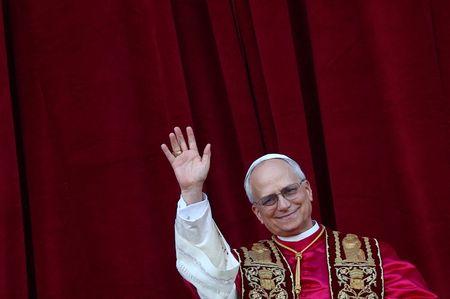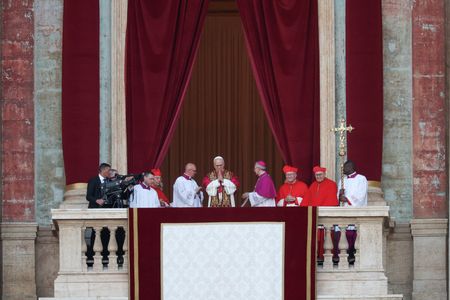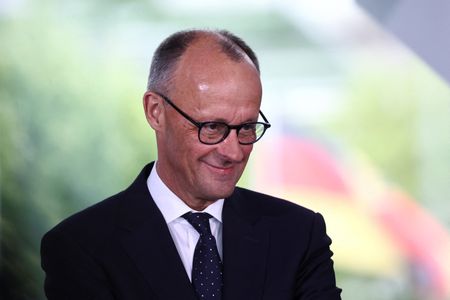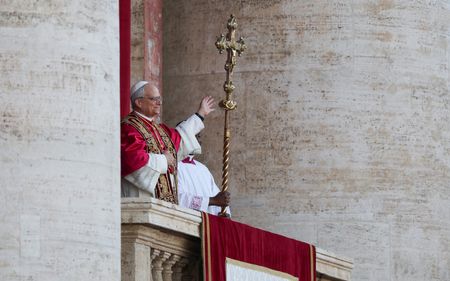By Amanda Cooper and Samuel Indyk
LONDON (Reuters) -The pound edged up on Thursday while British stocks struggled to find a foothold after U.S. President Donald Trump and UK Prime Minister Keir Starmer unveiled an eagerly awaited trade deal.
UK markets got some support from the Bank of England’s widely expected decision to cut its main interest rate by a quarter of a point to 4.25%, although a surprising three-way split among policymakers highlighted how Trump’s tariffs continue to cloud the economic outlook.
At a press conference in the Oval Office on Thursday, Trump and Starmer announced trade agreements on aluminium and steel, automotive and aerospace exports, and pharmaceuticals.
The pound rallied as much as 0.5% overnight, when reports of a possible deal surfaced, but pared much of those gains when some of the details emerged.
U.S. Commerce Secretary Howard Lutnick said the 10% tariff on imports from the UK would remain in effect, while Britain also retained a digital tax on large U.S. tech companies.
UK blue-chip stocks, which are more globally focussed, slid in afternoon trading, leaving the FTSE 100 down 0.3% on the day, while the more domestically focussed mid-cap index was still up 0.5%.
Sterling was last up 0.1% at $1.33.
The deal is Britain’s second within a week after it clinched a free trade pact with India.
“The UK’s direct exposure to U.S. tariffs is comparatively low. On some measures we run a trade surplus with America. Nonetheless, the deal today is another tick in the box for unloved UK equities,” said Tim Service, head of UK mid- and small cap equities at Jupiter Asset Management.
Unlike many of its major trading partners, the United States has a small trading surplus with Britain, of some $12 billion. Britain’s main exports to the United States are in the form of cars, steel and pharmaceuticals.
The FTSE 100 on Tuesday racked up 16 straight days of gains for its longest winning streak on record, powered by solid first-quarter earnings and optimism over easing global trade tensions.
Rolls-Royce was a top performer on the FTSE 100, rising 4.5% after Lutnick said the aerospace company’s engines and plane parts would not be subject to tariffs.
Shares in major British drugmakers AstraZeneca and GSK were among the biggest drags on the FTSE 100, down 3% and 1%, respectively.
U.S. tariffs have added pressure to the struggling British economy and were a factor behind the split among BoE policymakers at their meeting on Thursday.
“Two members, including chief economist Huw Pill, preferred to leave rates unchanged. That may reduce speculation as to a possible back-to-back reduction at next month’s meeting,” said Investec’s chief UK economist, Philip Shaw.
Traders trimmed bets on the chances of the BoE delivering another three rate cuts this year.
UK government bonds fell, pushing up the yield on rate-sensitive two-year gilts by 11 basis points on the day to 3.93%, from 3.791% ahead of the BoE decision.
(Additional reporting by Lucy Raitano; Editing by Bernadette Baum, David Goodman and Richard Chang)











